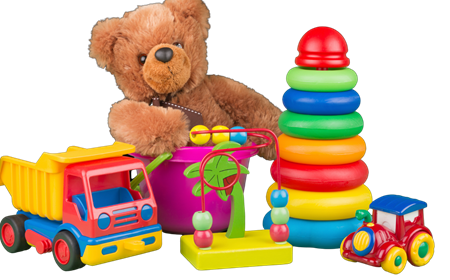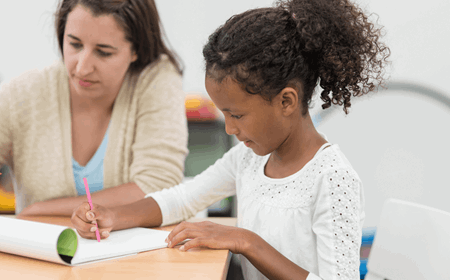You and /or your child may feel a little anxious about attending their first assessment appointment in a Speech and Language Therapy (SLT) clinic. If your child is shy or is very young and / or active you may wonder how the session will take place. SLTs enjoy meeting and engaging with children and parents, they are aware of how you and your child may feel; they will welcome you and will do their best to put you at your ease.

Speech and language therapy clinics are filled with toys and the SLT will help to put your child at ease by allowing them to play and settle into this new space. The therapist will typically join in with a young child’s play and gradually engage them in interactions. This may take a little while and it is all part of getting to know your child.
When you received your child’s letter of appointment before the assessment session you will have received a Case History Form to complete. Take time to complete this form before you bring it along to the appointment as the SLT will want to explore this information with you when you arrive. They will want to know what your concerns are and to learn as much as possible about your child's life; their medical social and developmental history; personality, play and interests; current level of language use and other communication-related questions. The purpose of the case history is to get a full picture of your child and their development and to help the SLT identify any factors that may have contributed to your child's difficulties.
You may be asked to describe how your child communicates, and to recall when they reached milestones such as:
Your SLT may also ask for information about how many words your child currently uses. This can be difficult to think of off-hand, so a TIP is to keep a Communication Log. This is a small notebook that you can keep nearby and use to write down the words that your child uses and the other ways they communicate, especially if they are not using words yet.
Every time that you notice your child use a new word or a gesture to communicate you can record it into the log and keep it as a record. By doing this, you can easily add up the number of words that your child uses and describe some of the ways that they communicate without words. Bringing the Communication Log along to the initial assessment appointment will be a great help to the SLT.

Once your child is feeling relaxed the therapist may begin some more structured assessments. The way in which the assessment is carried out will depend on your child's age and abilities. For younger children the assessment will be carried out through playing with different toys such as dolls, teddies, tea sets, miniature furniture, vehicles and animals. The SLT may observe your child playing alone or with you or their sibling initially and then become more involved in the play themselves.
For younger children in particular, a part of the assessment may involve a very detailed parental questionnaire. SLTs recognise that parents hold a wealth of information on their children’s skills and these interviews give the SLT a good insight into your child’s level of ability.
For older children (of school-age or above) the assessment is more structured and will usually be carried out using standardised assessments. These are typically in the form of pictures and/ or words, where the child will be asked to identify, name or remember instructions based on the information contained on the page. Standardised assessments are ones which are divided into different sections (or subtests) and must be carried out by the SLT in a particular way. The scores of these assessments allow the SLT to compare your child’s performance against other children of a similar age.
Here are some of the areas of language and communication that your SLT may assess:
|
Play |
How your child plays with others and with various types of toys and play materials such as bubbles, simple wooden blocks and puzzles, large dolls and teddies or miniature people, vehicles animals and objects. |
|
Phonology /Speech Sounds |
These are the individual sounds that are combined to make spoken words, just as written letters are combined to form written words. The SLT may carry out an assessment to analyse your child's speech sound pattern. |
|
Oro-motor/ Motor Speech |
Your child's ability to move the muscles of their mouth. The purpose of this assessment is to examine how your child can use the muscles of their mouth for both speech and non-speech tasks. An Oro-motor assessment can also be carried out as a central part of an assessment for Feeding, Eating, Drinking and Swallowing (FEDS) difficulties. |
|
Receptive Language Skills |
This means your child's understanding of the language used by others in conversation. |
|
Expressive Language Skills |
This is how your child uses words/sentences to express himself/herself and get his/her message across. |
|
Fluency/ Stuttering / Stammering |
This is about the forward flow of your child’s speech. Many children go through a typical period of language development when they frequently pause mid-sentence; repeat a sound, part of or a whole word so that it becomes noticeable to parents. For some children these speech behaviours persist. A child may be unaware of and not bothered at all by this or they may become aware, experience frustration and appear to struggle to speak. The therapist will observe your child and may carry out a detailed interview with you and possibly your child to help understand all the factors related to your child's speaking experience and how best to support them. |
|
Pragmatics (how we use language and gestures to communicate for different reasons and in different social contexts) |
This is about how your child communicates and interacts in real-life contexts. For example, how do they get your attention and let you know that want help; if they are telling a story, do they provide enough information for you make sense of it; do they take turns in a conversation or do they ask questions when they don't understand what they are being told. |
|
Feeding, Eating, Drinking and Swallowing (FEDS) |
For children who have difficulty with any of these. A FEDS assessment is not a standard part of every initial assessment. This will only be carried out if concerns have been raised about your child’s FEDS skills. A FEDS assessment for a child will usually involve observing your child eating a meal in order to assess things like drooling, chewing skills, the safety of the child’s swallow, seating position and posture during meals, ability to feed independently, negative reactions to certain foods, colours, and textures. |
Once the assessment has been completed your SLT will give you some verbal feedback on the information that they have gathered. You will also be presented with an opportunity to ask questions and discuss the assessment and results with the SLT. TIP: It may be useful for you at this time to take some notes on what the SLT is saying as it can be a lot of information to process during a conversation. Taking notes will allow you to reflect on this information after you have left the appointment and also to keep this information for your records.
You may receive a summary report of her findings before you leave the clinic and in some circumstances you may receive a more detailed report following the assessment.
Your SLT will discuss what steps can be taken to best suit your child's needs; if there is a need for a set of speech and language therapy sessions or simply advice and a follow up appointment or discharge if there are no concerns.
When attending for an assessment with a Speech & Language Therapist the most important thing is to be relaxed and prepared for the session by following the tips above.
Note: It is important to note that the actual assessment process is different depending on what the needs of the particular child are.
If you are concerned that your child has communication or feeding difficulties consult your local Speech and Language Therapist/ local health centre / GP.